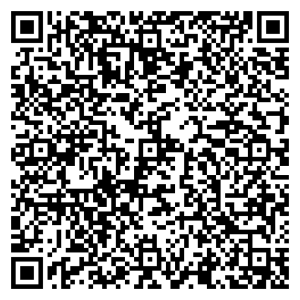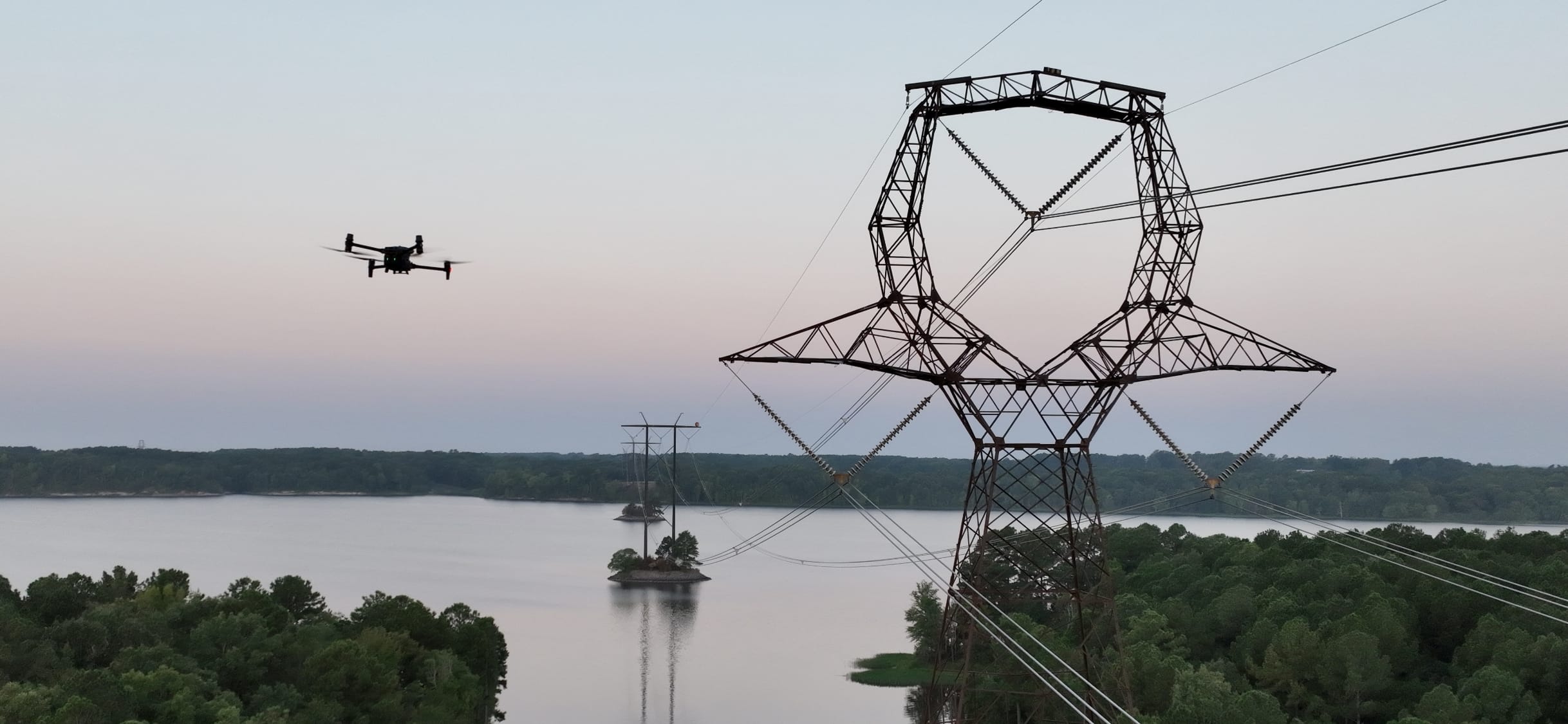
What We Do
QEW Drone Aviation is the premier drone aviation company exclusively serving the electric utility industry. Our team consists of highly skilled IBEW journeyman lineman, making us the only full-time company of its kind. All our FAA licensed drone pilots are experienced linemen with a minimum of 10 years in the utility sector.
Our unique value proposition lies in our ability to collect asset data using drones and provide accurate assessments of asset conditions, complying with industry standards and regulations. We utilize cutting-edge drone technology, delivering high-resolution 4K video, photos, and thermal imaging for comprehensive inspections. Our services cater to regulatory compliance, asset management, risk mitigation, work verification, and troubleshooting needs.
In essence, we offer a complete drone program for utilities, offering unmatched expertise and technological capabilities to fulfill their operational requirements efficiently.

QEW stands out as a comprehensive and dedicated drone program specifically designed for the utility industry. Unlike other companies that act as brokers for freelance drone pilots using consumer-grade drones, we offer a top-to-bottom solution.
These brokers typically post jobs and assign them to the lowest bidder without considering the pilot's utility industry experience, if any, or ability to meet regulatory inspection requirements. In contrast, our team comprises seasoned professionals with 10 to 25 years of experience as linemen and troubleshooters. We possess an in-depth understanding of utility infrastructure, including transmission and distribution assets, and critical operating equipment.
By leveraging drones as our "eyes in the sky," we provide reliable and industry-specific inspections. Rather than merely providing a stack of photos, we deliver comprehensive data and expert analysis of asset conditions. Our deliverables include legal document that assist with regulatory compliance and internal work coordination, accompanied by thermal imaging for enhanced insight into asset condition.
In essence, QEW offers the utility industry a dependable, informed, and thorough solution, ensuring regulatory compliance and providing actionable information for efficient decision-making.
Drones represent the future of aviation; this sentiment is voiced by the FAA. Their website affirms the transformative potential of drones, not only in aviation but also in utility infrastructure inspection and troubleshooting. At QEW, we recognize the convergence of these futures, utilizing industry professionals as drone pilots.
Traditional methods of inspection and troubleshooting involve labor-intensive and costly physical patrols, whether on foot or in vehicles. These approaches often require line workers to climb poles or towers, use specialized equipment, or even rely on helicopters, which are prohibitively expensive for many utilities. For instance, a line crew can cost $15,000 per day, while a helicopter's total expense can reach $50,000.
Drones offer several advantages, starting with enhanced safety for workers and the general public. There's no need for fall restraints or the risk of accidents. Cost-wise, drones operate at a fraction of the expense compared to crews or helicopters. They eliminate the need for heavy equipment, support vehicles, and landing zone payments.
Additionally, drones have a significantly smaller environmental footprint as they don't consume vast quantities of oil-based fuel. Instead, they rely on a standard 120-volt electrical outlet.
At QEW, we consolidate patrol, inspection, and assessment under a single work order, streamlining processes and ensuring comprehensive coverage.
Our company is driven by a singular focus: safety. With modern drone technology and skilled line workers, we provide the safest means of inspecting, patrolling, and troubleshooting utility infrastructure. This ensures the safety of workers, the public, and the utilities themselves. We prioritize safety above all else and expect nothing less from our dedicated linemen/pilots.
Our vision encompasses the full potential of drone technology. We envision a future where drones become a standard tool for utility troubleshooters and inspectors, complementing their skill set. Drones will play a central role in compliance, work verification, and risk management. We are actively preparing for the integration of larger and more sophisticated drones capable of carrying substantial payloads. This will enable us to access inaccessible areas, string conductors over challenging terrain, wash insulators in urban environments, and even set poles in rugged landscapes.
Similar advancements are already being implemented in countries like Austria, China, and Japan, and QEW is poised to be the pioneer bringing this technology to the United States utility industry.
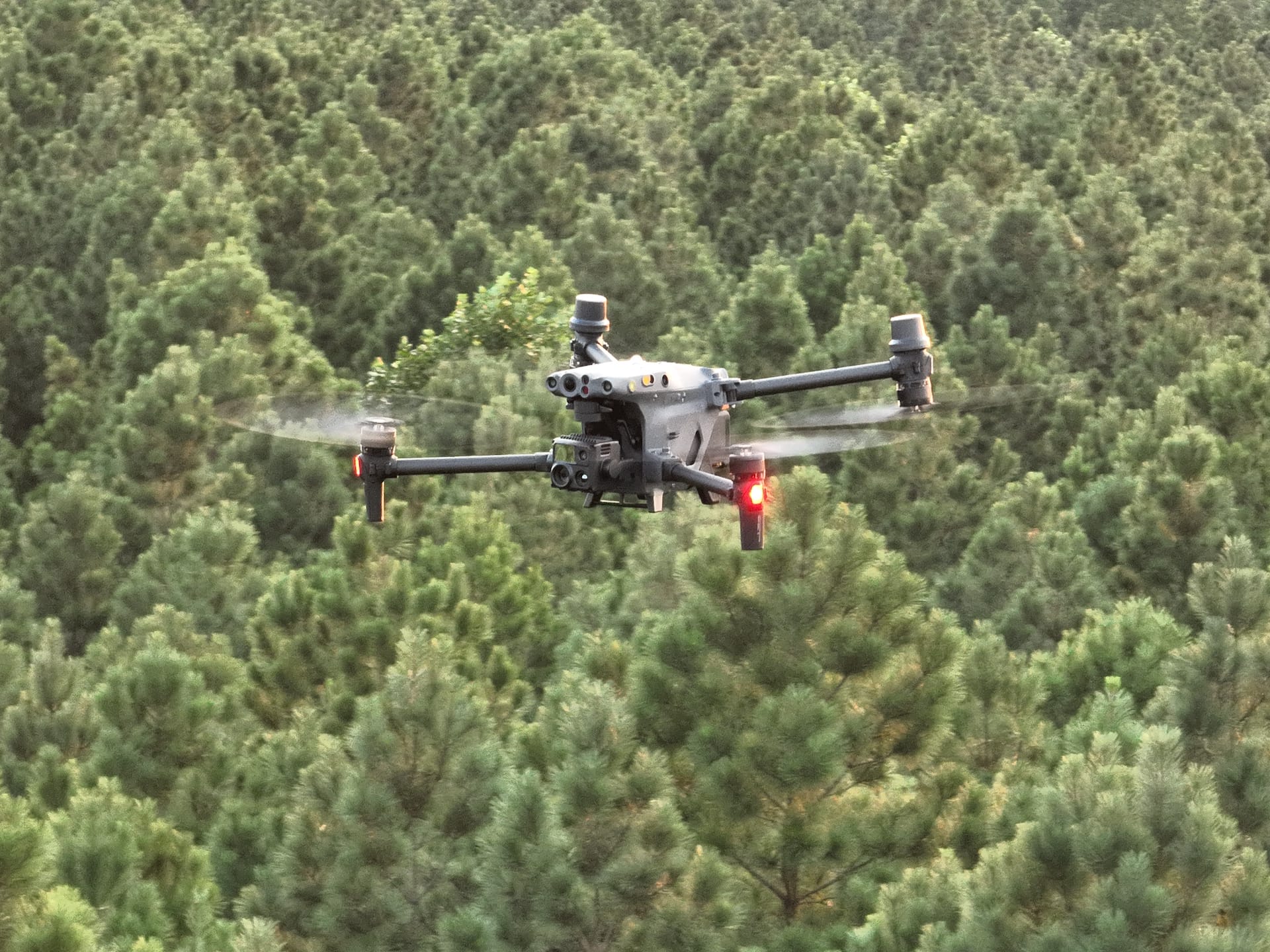
Platforms
Drones we utilize:
DJI Matrice 30
DJI Matrice 30T
DJI Mavic 3 Enterprise
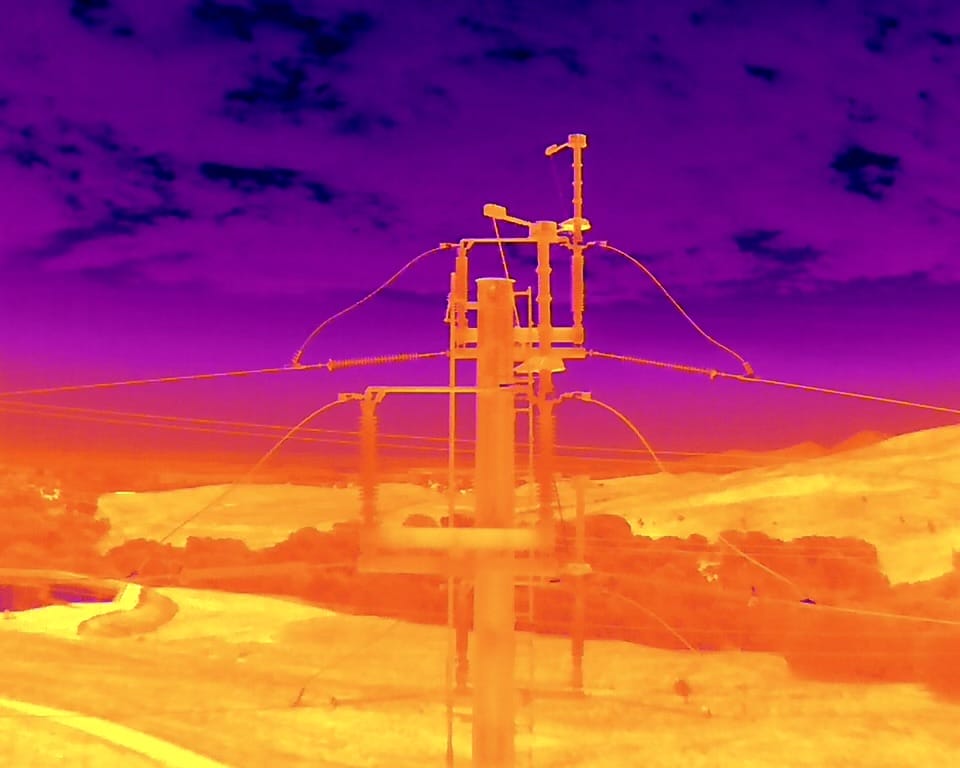
Services
Storm Assessing/Patroling
Tower/Pole Inspection
Thermal Imaging
Equipment Inspections

Sensors
12MP zoom camera supporting up to (56x zoom camera)
640x512 Resolution Thermal Camera
| Structure of Drone Program | Model | Advantage | Disadvantage |
|---|---|---|---|
| Internal | All resources are used internally from data collection to final assessment. | You control the entire process from data collection to final assessment. | Requires time and resources of the company. Assumes liability. Expensive. Company incurs all cost of procurement and implementation. |
| Hybrid | Internal data collection and outsourced assessment or vice-versa. | Less liability and startup cost. Dedicated internal resources. | Managing multiple work groups is often costly and problematic. |
| Outsource | Third party contractors collect data and delivers final assessment. | No liability. Save on cost of staff, training, and equipment procurement regulatory compliance. | Data collection and assessment are performed by different entities. Data collected must be reviewed before assessment is made. |
| QEW Drone Aviation | QEW collects all data and delivers final assessment and recommendations. | QEW assumes all costs and liability. Procures all equipment. Maintains regulatory compliance. Provides immediate assessment and recommendations. | None. QEW provides data collection via drone and assessment by qualified journeymen lineworkers per regulator agency. |
Structure of Drone Program
Internal
Model
All resources are used internally from data collection to final assessment.
Advantage
You control the entire process from data collection to final assessment.
Disadvantage
Requires time and resources of the company. Assumes liability. Expensive. Company incurs all cost of procurement and implementation.
Hybrid
Model
Internal data collection and outsourced assessment or vice-versa.
Advantage
Less liability and startup cost. Dedicated internal resources.
Disadvantage
Managing multiple work groups is often costly and problematic.
Outsource
Model
Third party contractors collect data and delivers final assessment.
Advantage
No liability. Save on cost of staff, training, and equipment procurement regulatory compliance.
Disadvantage
Data collection and assessment are performed by different entities. Data collected must be reviewed before assessment is made.
QEW Drone Aviation
Model
QEW collects all data and delivers final assessment and recommendations.
Advantage
QEW assumes all costs and liability. Procures all equipment. Maintains regulatory compliance. Provides immediate assessment and recommendations.
Disadvantage
None. QEW provides data collection via drone and assessment by qualified journeymen lineworkers per regulator agency.
Jeff Greer
Co-founder, CEO West Coast Operations
Jeff Greer is an FAA licensed UAV pilot, level 1 thermographer and journeyman lineman and troubleman. Jeff started his career as an aircraft mechanic in the U.S. Air Force. He has over 20 years experience as a lineman, line crew foreman, compliance inspector, and troubleman for the nation’s largest investor-owned utility.
Justin Winn
Co-founder, CEO East Coast Operations
Justin Winn has over 20 years of experience in the electric utility industry. Since 2004 he has been actively involved in various critical operations playing vital roles in disaster response and restoration efforts. Justin has excelled in diverse positions such as Lineman, Crew foreman, general foreman, compliance inspector and a seasoned Troubleman at the nation's capital. His qualifications extend beyond experience as he also possesses a level 1 thermography certification and FAA UAV License, enabling him to operate drones, commercially.
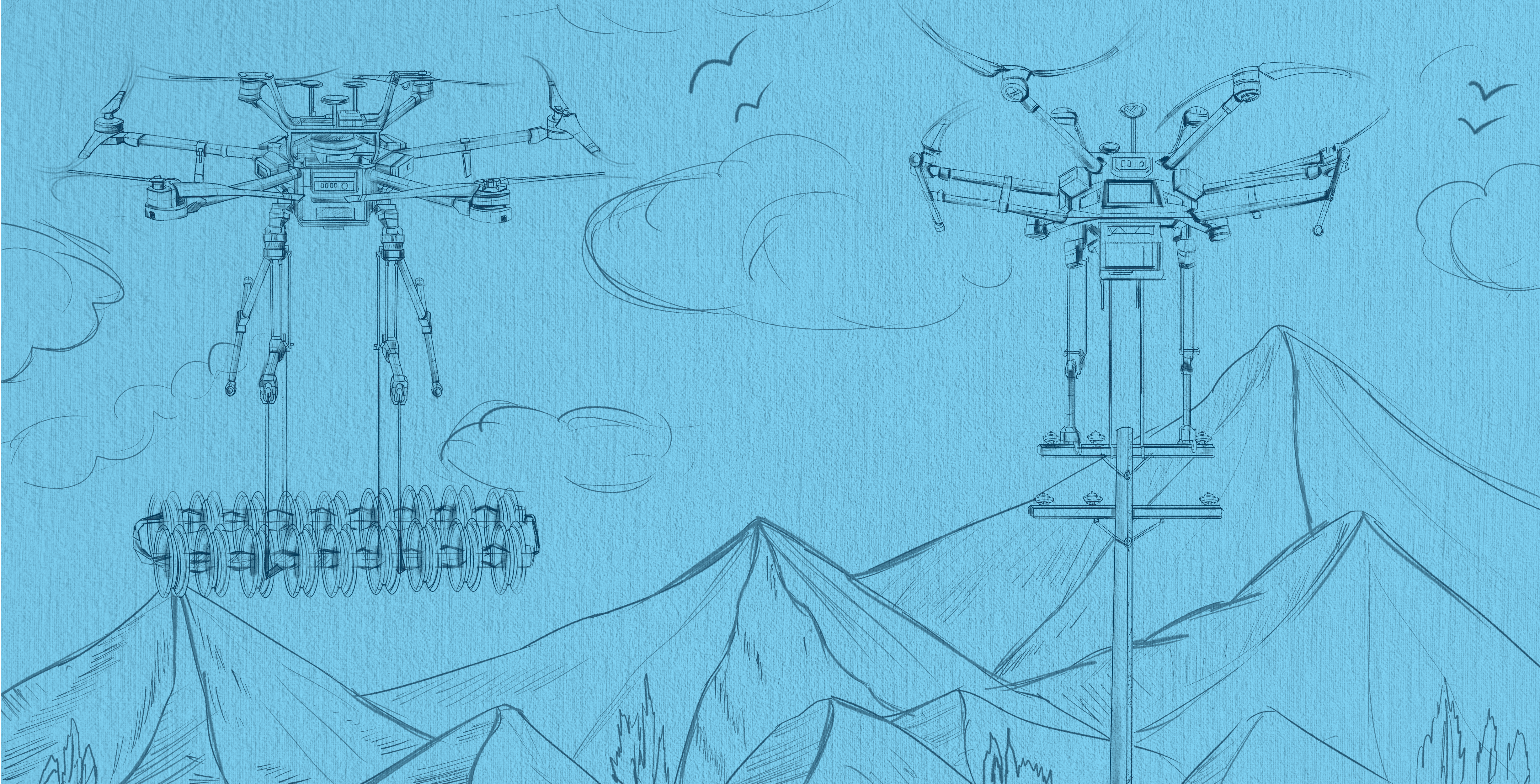
Contact Us
Add our mobile app to your home screen
